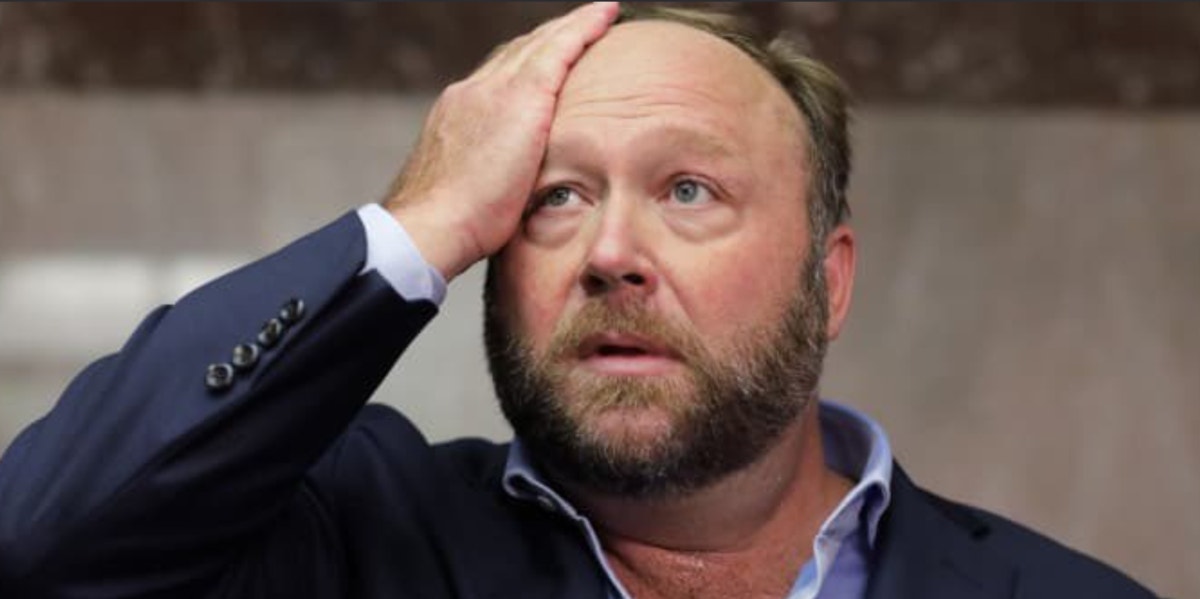Families Of Sandy Hook Victims Win Defamation Case Against Far-Right Radio Host Alex Jones
His comments are unforgivable.
 Twitter
Twitter It seems that Alex Jones’ legal reckoning is here. Jones of InfoWars and the Alex Jones Show is one of the best-known far-right conspiracy theorists and it seems as though some of his “theorizing” has caught up to him.
Jones has been found guilty by default in four defamation cases brought against him by parents of Sandy Hook shooting victims.
The decision was made by a Connecticut judge following Jones’s repeated failures to produce evidence to support the false claims that he made regarding the Sandy Hook shooting back in 2012.
What did Alex Jones say about Sandy Hook?
Jones went on the warpath following the Sandy Hook shooting in which a 20-year-old used a legally owned gun to kill his mother, 20 children students, 6 adult staff members and himself at Sandy Hook Elementary School.
RELATED: Why The Domestic Terrorism Incited By Donald Trump Is A Sadder Day Than 9/11
Jones’ comments were, frankly, in line with his usual insane conspiracy theories, which include his famous “I don’t like ‘em putting chemicals in the water that turn the freaking frogs gay.”
In the years following the shooting Jones made several heinous comments denying the reality of the tragedy, saying that it “Pretty much didn’t happen” that “The whole thing was fake” and that the children were simply “crisis actors” and that the whole thing was a “giant hoax”
Jones ran headlines like “FBI says no one was killed at Sandy Hook.”
The litigation brought against Jones claims that Jones benefitted monetarily from his comments while the parents of the children that were killed at Sandy Hook went on to receive harassment, including death threats from Jones’s fans.
Jones did grow in popularity in the years following his coverage of Sandy Hook, his popularity peaking in 2015 when he interviewed the then-leading Republican 2016 presidential candidate Donald Trump.
So when Jones and his team refused to provide evidence to the court that supported his vicious and false claims, the judge ruled that he was guilty by default.
This begs the question, what would have been so dangerous in that evidence that Jones elected instead to not provide it and be guilty by default? It isn’t clear and it may never be publicly made clear.
The only thing that is for certain is that with all of these rulings and the possibility of punitive damages, Jones is going to have to be out a lot of money.
It remains to be seen exactly what Jones will have to pay but the door is open for punitive charges and that decision will be made by juries in 2022.
The right to free speech covers a lot in this country and you can say almost anything. Key word being almost.
RELATED: 5 Reasons People Believe Conspiracy Theories — And How To Protect Yourself From Misinformation
Free speech doesn't protect everything.
Some of the usual examples of “banned speech” are speech that is designed to incite unlawful action and threats.
Another, more nuanced sort of restricted speech is defamation. In short, defamation is speech that falsely causes some kind of harm.
There are more specifics to it than that, like the differences between libel, slander, and public figures versus normal citizens but the gist is that when someone says something false about someone else with the intent to cause some kind of harm or negligently, they might be found guilty of defamation.
Dan O'Reilly is a writer who covers news, politics, and social justice. Follow him on Twitter.

